How dear fair elections are for us
Ralitsa Kovacheva, April 19, 2010
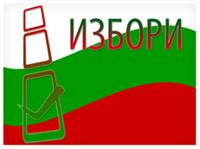 The easiest way to make people give up something is to convince them that it is complex and expensive. Something like that Bulgarian politicians do with democracy: they constantly convince us that democracy is something complex and expensive, thus it must be deal with only by chosen (parliamentary) people and, if possible, as rarely as possible. Not to mention elections - being the supreme manifestation of democracy - they are more complex and more expensive. Something between quantum physics, genetic engineering and composing. Not everyone knows Hare Niemeyer (or Victor D'Ont!). After all they are not our schoolmates!
The easiest way to make people give up something is to convince them that it is complex and expensive. Something like that Bulgarian politicians do with democracy: they constantly convince us that democracy is something complex and expensive, thus it must be deal with only by chosen (parliamentary) people and, if possible, as rarely as possible. Not to mention elections - being the supreme manifestation of democracy - they are more complex and more expensive. Something between quantum physics, genetic engineering and composing. Not everyone knows Hare Niemeyer (or Victor D'Ont!). After all they are not our schoolmates!
After 20 years of serious efforts of the political class, for most of the Bulgarians democracy is still like bananas under the socialism - come rarely and cost dear. Actually, things are quite simple. Just like the bananas are crooked:
Every citizen (under specific legal conditions) has the right to vote in elections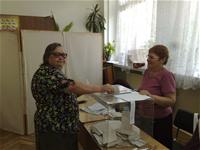 (local, parliamentary, European, presidential), by their own convictions and political views, free and fair. Each citizen has the right to know who he or she voted for and what will the consequences of his choice be. In order to be able to seek political responsibility from the elected person or party if they do not fulfill their promises to voters. This is the way every citizen to take part in governance (on different levels) through their elected representatives.
(local, parliamentary, European, presidential), by their own convictions and political views, free and fair. Each citizen has the right to know who he or she voted for and what will the consequences of his choice be. In order to be able to seek political responsibility from the elected person or party if they do not fulfill their promises to voters. This is the way every citizen to take part in governance (on different levels) through their elected representatives.
It is not that complicated, is it? Moreover, the proper electoral rules and procedures, just like the wheel, have been discovered long ago. And are even being implemented in many countries around world, surprisingly to Bulgarian lawmakers. Who are dieing to create long-name-committees, full of experts and advisers, discovering the wheel of electoral legislation once in every 4 years, depending on the needs of the governing majority.
In the meantime, elections are being bought, sold, controlled, manipulated, corrupt and have lost their purpose. Thus more and more citizens have lost their right to choose, while others have acquired in a different way the right to have representatives in the institutions. Electoral insanities in the last three years forced the new parliamentary majority to promise urgently the creation of an Electoral Code, which is supposed to make once and for all equal rules for all kinds of elections, thus eliminating the temptation to change election laws in every 4 years. For that purpose a temporary committee has been established to prepare a draft of an Electoral code. By obligation, all parliamentary parties have representatives in it and civil organisations are also allowed to take part voluntarily. They are the ones who are most active in proposing changes in electoral legislation on behalf of fair and transparent electoral process.
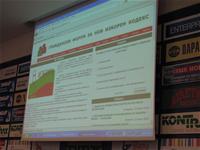 How is the dialogue in the Committee going on you can follow on a special website "Civic Forum for New Electoral Code", established under the project "Civil monitoring of the process of adoption of new electoral rules in Bulgaria” of the Institute for Public Environment Development. Unlike Bismarck, who believed it was better if people didn’t know how sausages and laws were being made, the creators of the project insist to closely monitor the process and, moreover, to take part in it.
How is the dialogue in the Committee going on you can follow on a special website "Civic Forum for New Electoral Code", established under the project "Civil monitoring of the process of adoption of new electoral rules in Bulgaria” of the Institute for Public Environment Development. Unlike Bismarck, who believed it was better if people didn’t know how sausages and laws were being made, the creators of the project insist to closely monitor the process and, moreover, to take part in it.
On the website, aside from the verbatim reports from of the meetings of the commission, news and comments, you can also read proposals from NGOs and compare the positions of political parties on various issues. You can also take part in a poll about the type of electoral system, the results of which will be submitted to MPs, so it would be better if it is based on wider participation.
So far, three NGOs take part in the debates on the new Electoral code. “Transparency international” with its idea of regional counting centers - an idea that was not accepted by the previous parliamentary majority. The proposal is independent observers to be given the right to count ballots instead of the election committees, composed by political parties' representatives. The organization “Voting without borders” proposes e-voting and consolidation of electoral districts to encourage and facilitate voting abroad.
The Institute for Public Environment Development proposes legislative changes  for the local elections. For instance, smaller electoral districts, which will enable nominees to be geographically connected with their voters and to take more concrete political responsibilities.
for the local elections. For instance, smaller electoral districts, which will enable nominees to be geographically connected with their voters and to take more concrete political responsibilities.
“According to the European standards there is no local self governance in Sofia on a district level, because there is a district mayor, but there are no municipal councilors, budget or decision-making. This is no decentralization but deconcentration”, explained Antoaneta Tsoneva, President of the The Institute for Public Environment Development. And this is the essence of their proposal - to bind municipal councilors to a certain district neighborhood and a number of people.
The current electoral districts-municipalities are too big. In Bulgaria a municipality has around 30,000 inhabitants on the average, while in Europe this number is several times smaller. Dividing a municipality to several electoral districts will reduce the number of registered lists of candidates and hence the distribution of votes. As a whole this will it make more difficult the votes trading and controlling.
Against election frauds and manipulations is directed another proposal for radical reduction of the number of party observers for each nominee. Currently each candidate from a party list can register his own personal observers. So if there are, for example, 20 parties and coalitions with 10-20 names in a list, this means a huge number of observers. The surveillance of local elections shows that it is these people that take part in well organized networks that buy and control voters. "So many observers is either a nonsense, or a well protected dirty secret of Bulgarian legislation", Antoaneta Tsoneva said. The experts propose each party to register up to 2 observers in a section.
Regarding financing, there is only one proposal, aimed at making money to leave traces: the entire party funding and the campaign spending should done via bank transfers. This would enable the authorities to trace the origin of the money for election campaigns. Because, according to the experts, the construction of political subjects with dirty money is being performed via the so called “state capture” by criminal structures.
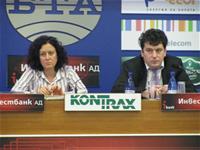 So far the temporary parliamentary committee has not decided anything concrete about local elections, but there is a wide consensus among all political parties that there should not be any preferences. The experts think that the reason for this position is that often attractive posts in local administration are being used to reward party activists or campaign donors. Antoaneta Tsoneva says that it is with municipal voting, where people know each other and preferences are most suitable and in Europe this is used in different ways.
So far the temporary parliamentary committee has not decided anything concrete about local elections, but there is a wide consensus among all political parties that there should not be any preferences. The experts think that the reason for this position is that often attractive posts in local administration are being used to reward party activists or campaign donors. Antoaneta Tsoneva says that it is with municipal voting, where people know each other and preferences are most suitable and in Europe this is used in different ways.
The experts are convinced that their proposals will meet resistance from the parties in Parliament. But what is more important is their ideas to reach as many people as possible. The more NGOs, media and people take part in the discussion of the new Electoral Code, the more people are involved in the development of common and transparent rules, the lesser the chance parliamentary parties to make backstage arrangements will be.
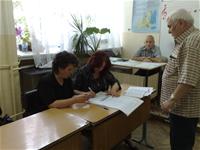 There is no reason for you to care what the sausages contain and not care how the municipality council that governs your town was elected, or the parliament that passes the laws. The only guarantee the rules of the game to be fair and equal for all of us is to agree on them together. And then - respect them.
There is no reason for you to care what the sausages contain and not care how the municipality council that governs your town was elected, or the parliament that passes the laws. The only guarantee the rules of the game to be fair and equal for all of us is to agree on them together. And then - respect them.